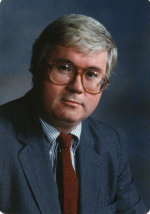Rosemary Sokas, James P. Keogh Award Winner for 2005
NOTE: This page is archived for historical purposes and is no longer being maintained or updated.

Dr. Sokas has made exceptional contributions in occupational safety and health through her work at the University of Pennsylvania, the Philadelphia VA Medical Center, the George Washington University, OSHA, NIOSH, and the University of Illinois. Dr. Sokas is being recognized for her passion and commitment to improving the health of workers, particularly among underserved populations, as well as her dedication to furthering the training of medical professionals in occupational medicine.
Dr. Sokas holds a B.A. in Medical Science from Boston University College of Liberal Arts, an M.D. from Boston University School of Medicine, a Master's of Occupational Health from Harvard School of Public Health, and a Master of Science degree in Occupational Physiology from Harvard School of Public Health. Dr. Sokas currently is the Director of the Division of Environmental and Occupational Health Sciences at the University of Illinois at Chicago School of Public Health, where she also teaches and conducts research. Before joining the University of Illinois, she was Lead Medical Officer and then Associate Director for Science in NIOSH, Director of the Office of Occupational Medicine in OSHA, Professor of Medicine and Health Care Sciences at the George Washington University, and Assistant Professor of Medicine at the University of Pennsylvania School of Medicine and the Philadelphia VA Medical Center.
While at the University of Pennsylvania, Rosie demonstrated an excellent capacity to bridge the important gap between general medical practice and occupational medicine. After joining the developing program in occupational medicine at George Washington University, she established herself as an excellent teacher and researcher and had the opportunity to influence many young graduate students and doctors. At OSHA, she developed the first formal goals, objectives, and occupational plan for the Office of Occupational Medicine, and directed the integration of occupational medicine support services into major field compliance activities. At NIOSH, Rosie's commitment to public health was demonstrated in the crucial role she played for the nation's workers in the aftermath of 9/11 and the anthrax attacks. NIOSH now is recognized for its capability to offer essential contributions during terrorist events, a standing and credibility that is a direct result of her work. Dr. Sokas was and remains a truly effective advocate for NIOSH and for worker safety and health. She also has made a profound impact on the education and training of occupational physicians; her work on medical education is something she shared with Jim Keogh. She tirelessly has worked to train or improve training in occupational medicine. For example, during her career she has worked to define the competencies for residency training for the American College of Occupational and Environmental Medicine, something that impacts nearly all occupational residents trained today. Now at the University of Illinois, she continues to impart her skills and passion to generations of occupational physicians.
We are delighted to honor her with this award in memory of Jim Keogh. While she was a Professor at the Department of Medicine at the University of Pennsylvania, Rosie worked with Jim on the relationship between hypertension and lead burden. In 1998, she published with Jim on a shortened form of provocative chelation, a diagnostic test used to demonstrate remote past lead exposure.
The James P. Keogh Award for Outstanding Service in Occupational Safety and Health award recognizes one current or former NIOSH employee each year for exceptional service to the field. The award is offered in honor of Dr. James P. Keogh, a tireless advocate for worker safety and health who died in June 1999, at the age of 49. The Keogh Award committee, chaired by Frank Hearl, NIOSH Chief of Staff, solicited nominations from NIOSH employees and judged the nominees on the basis of contributions above and beyond the call of duty. The committee placed special emphasis on contributions made by public health workers willing to fight long odds to achieve safer and healthier workplaces.
- Page last reviewed: October 17, 2011 (archived document)
- Content source:
- Centers for Disease Control and Prevention
- Page maintained by: Office of Associate Director of Communication, Division of Public Affairs


 ShareCompartir
ShareCompartir